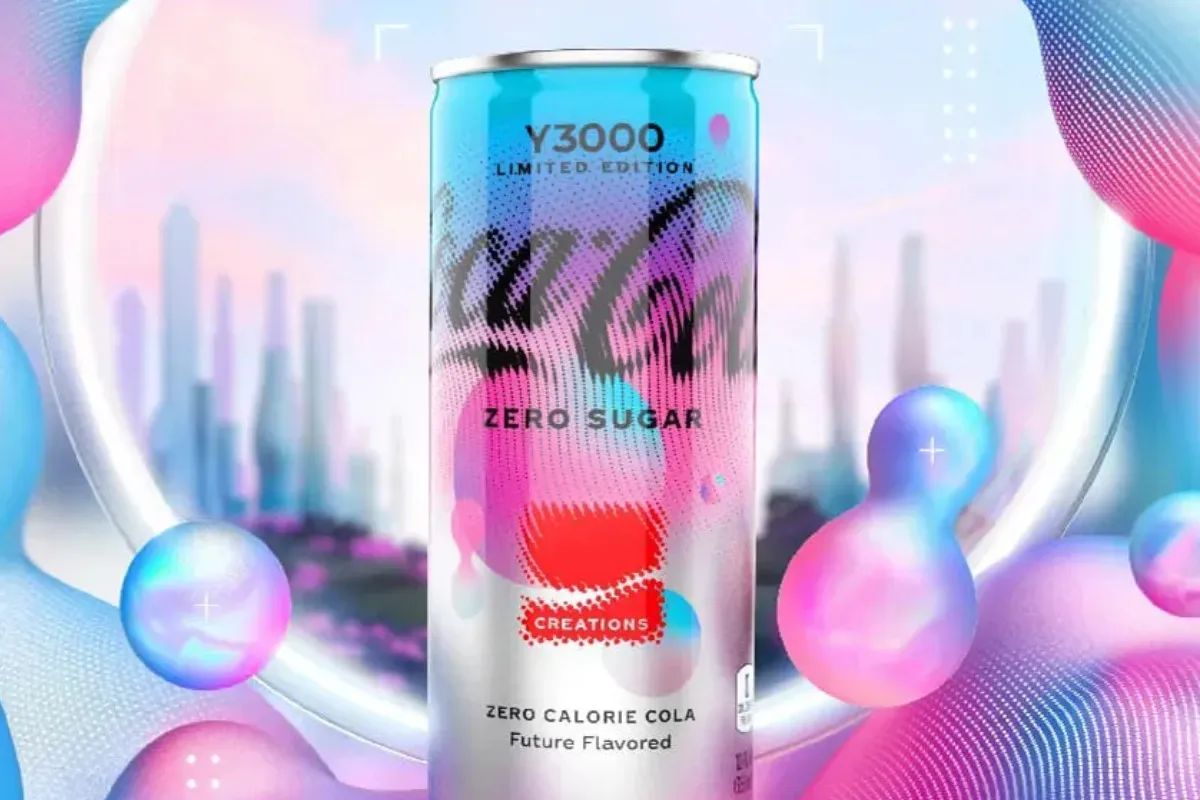As an inevitable outcome of the “artificial intelligence” craze, Coca-Cola is now selling an AI-generated limited edition flavor. Are you ready for Coca-Cola Zero Sugar Y3000? Probably not; it is, rather predictably, revolting.
Of course, Coca-Cola Zero Sugar Y3000— so named because it is apparently what Coke will taste like in the year 3000—is only “partially” AI-generated. It’s only partially produced by AI because, unlike whoever put those AI-generated foraging books on Amazon, the Coca-Cola Company is large enough and lawyered up enough to know that they’d better have a human being checking and tweaking these AI-produced recipes just to make sure they don’t accidentally poison a bunch of people.
After all, current generative AI isn’t actually very good at anything other than producing a whole lot of mostly grammatically correct sentences with a few keywords thrown in for good measure. It can’t really tell fact from fiction, let alone whether or not humans are supposed to eat something, and perhaps most importantly, it doesn’t know if mixing certain substances is likely to produce an explosion, a poisonous gas, or some other undesirable outcome. I suppose, given AI’s potential for mass poisoning, we should be grateful that Coca-Cola Zero Sugar Y3000 is theoretically drinkable—at the very least, you will survive the experience of doing so, though you’re unlikely to want to do it again.
It is described on Coca-Cola’s British website as “[…] a co-created futuristic flavour developed by tapping into both human and artificial intelligence to understand how fans envision the future through emotions, aspirations, colours and flavours. Fans’ perspectives from around the world, combined with insights gathered from artificial intelligence, helped inspire the unique taste of 3000.” However, the actual taste of Coca-Cola Zero Sugar Y3000—or Coca-Cola 3000 Zero Sugar as it’s called in the U.K.—has been described as “marinara sauce with coke backwash,” “a party in my mouth but everyone is throwing up,” and, bizarrely, “carrots.”
There’s very little consensus among Coca-Cola Y3000 drinkers on what it actually tastes like. The most common interpretation seems to be some sort of tutti frutti candy with a revolting aftertaste—and somehow equally revolting texture—but all in all, the experience of drinking Coca-Cola Y3000 seems to be that it is an unpleasant, confusing mystery, with even the most positive reviews being something along the lines of “I’d have it again, but only if someone buys it for me.”
In all seriousness, can we just stop now? Please? Can we come together and decide to just put AI away for a bit until we’ve at least ironed all the kinks out, figured out some basic regulations to protect artists and writers’ IP, and have stopped people from publishing well-meaning guides to poisoning yourself on Amazon? Even some of the tech guys want to stop, and you know how enthusiastic they usually are about new ways to use technology that make everybody’s lives worse and set more of the planet on fire (yes I am subtweeting Bitcoin and NFTs and thoroughly misusing the term subtweeting because there are no rules anymore and I feel it captures the spirit of what I’m doing).
Obviously, this is just a cheap money-grabbing publicity stunt from Coca-Cola, and it’s worked because a bunch of people went out to buy their weird new AI-generated flavor only to spit it out and say “Ew, gross” as soon as they tried it. These novelty flavors aren’t designed to have staying power in the market. But it’s also the epitome of what’s wrong with AI use right now: Coca-Cola has managed to put together something borderline edible but generally pretty far removed from what the average human wants to consume, and then they sold it to us anyway—and people still bought it. Partly because it’s Coke but also because it had AI on the label.
Seriously, can we be done?
(featured image: The Coca-Cola Company)










Published: Sep 26, 2023 06:02 am